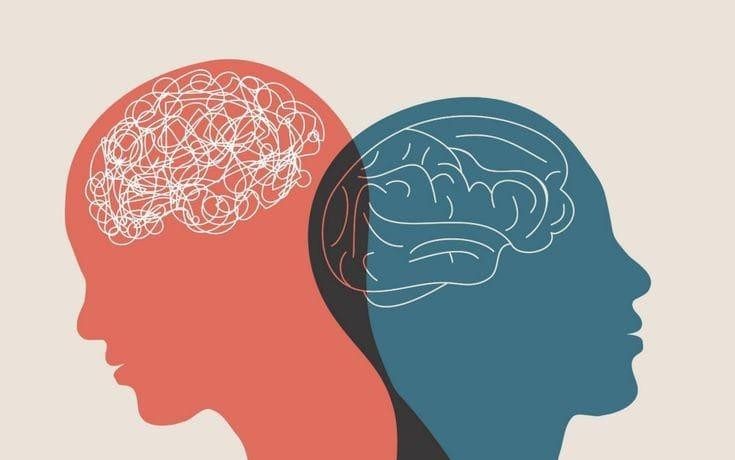Mental health is a core aspect of overall well-being, yet it remains one of the most neglected areas of healthcare in many developing countries, including Pakistan. With a population exceeding 240 million, Pakistan faces a mounting mental health crisis that is exacerbated by social stigma, lack of resources, and systemic neglect. This issue has far-reaching implications, affecting individuals, families, and society at large. The immediacy to address this growing concern cannot be overstated.
The Scope of the Crisis
According to the World Health Organization (WHO), an estimated 24 million people in Pakistan suffer from mental health issues, including depression, anxiety, and substance abuse. The actual number could be higher due to underreporting and misdiagnosis. In spite of the severity of the issue, Pakistan’s mental health system is underdeveloped, with only about 500 psychiatrists and 300 clinical psychologists nationwide, leading to an alarming doctor-to-patient ratio.
Factors Contributing to the Crisis
Several socio-economic and cultural factors contribute to the mental health crisis in Pakistan:
- Poverty and Unemployment: Pakistan is struggling with high levels of poverty, with over 21% of the population living below the poverty line. Unemployment, inflation, and economic instability contribute to chronic stress, depression, and anxiety. Economic hardships can create a sense of hopelessness, pushing individuals toward substance abuse and self-harm.
- Social Stigma: One of the biggest barriers to seeking mental health treatment is the blot associated with mental illness. In Pakistan, mental health issues are often dismissed as a personal weakness or a result of supernatural forces. Individuals with mental illnesses are marginalized, often ridiculed, or labeled as “mad.” This cultural stigma dishearten people from seeking help and exacerbates their conditions.
- Lack of Awareness: A significant proportion of the population is unaware of the symptoms and treatment options for mental health disorders. Mental illness is often not recognized as a medical condition but instead treated as a spiritual or moral failing. Traditional healers or religious leaders are often consulted rather than trained medical professionals.
- Trauma from Conflict and Natural Disasters: Pakistan has a history of exposure to trauma, including terrorist attacks, military conflicts, and natural disasters such as earthquakes and floods. These events leave deep psychological scars, particularly among children and adolescents, who are especially vulnerable to post-traumatic stress disorder (PTSD).
- Family Dynamics and Gender Inequality: Family pressure, domestic violence, and gender-based discrimination also play significant roles in mental health decline, especially among women. Women are often subjected to violence, harassment, and forced marriages, resulting in severe psychological distress.
The Youth at Risk
AN astonishing number of Pakistan’s youth are increasingly becoming victims of mental health disorders. According to a study by the Aga Khan University, almost one-third of adolescents in Pakistan experience significant levels of anxiety and depression. This is particularly concerning given that youth make up a large portion of Pakistan’s population.
The pressure to perform academically, meet family expectations, and navigate social dynamics leaves many young people overwhelmed. The absence of mental health education in schools and the limited availability of counseling services further aggravates the situation.
The Role of Technology and Social Media
While technology has facilitated access to information, the excessive use of social media platforms has contributed to boost mental health problems, particularly among the younger generation. The constant to idealized lifestyles and the pressure to conform to societal expectations often leads to feelings of inadequacy, loneliness, and depression. The lack of digital literacy in addressing cyberbullying and online harassment further compounds these issues.
Systemic Failures in Mental Healthcare
Pakistan’s healthcare infrastructure is ill-equipped to handle the mental health crisis.
Mental health services are often concentrated in urban centers, leaving rural areas largely underserved. Moreover, the budget allotment for mental health is less than 1% of the total healthcare budget, reflecting the government’s disregard for the seriousness of the issue.
There are only five mental health hospitals in Pakistan, and the number of rehabilitation centers is also deficient. The limited number of qualified professionals, such as psychiatrists, psychologists, and counselors, contributes to long waiting periods for treatment, with many patients unable to approach timely care. Additionally, mental health training is not emphasized in medical education, further aggravating the shortage of skilled personnel.
A Way Forward: Addressing the Mental Health Crisis
While the mental health crisis in Pakistan is alarming, there are steps that can be taken to address the issue:
- Public Awareness Campaigns: Education is key to reducing the stigma surrounding mental health. Public awareness campaigns using media, social platforms, and grassroots initiatives can help normalize conversations around mental health and support individuals to seek help.
- Integration of Mental Health into Primary Care: To address the shortage of mental health professionals, mental health services should be integrated into primary healthcare systems. Training general practitioners to recognize and treat
common mental health disorders can improve early identification and treatment rates.
- Expanding Access to Mental Health Services: The government should increase its budget allocation for mental health services and assure that treatment facilities are available in both urban and rural areas. Telemedicine could be leveraged to provide counseling and psychiatric consultations to underserved regions.
- School-Based Mental Health Programs: Introducing mental health education in schools and universities can help young people identify symptoms and seek help. School counselors should be made available to offer psychological support to students.
- Strengthening Legislation: Pakistan’s mental health laws need to be updated to protect the rights of individuals with mental illnesses. Legislation should aim to ensure that mental health services are accessible and affordable for all citizens, regardless of socio-economic status.
- Support from Religious and Community Leaders: Given the influence of religious and community leaders in Pakistan, their involvement in mental health awareness could have a substantial impact. By promoting mental health as a vital aspect of overall well-being, these leaders can help change societal perceptions and encourage individuals to seek professional help.
Conclusion
The mental health crisis in Pakistan is a pressing social issue that requires immediate attention. With millions of people affected by mental health disorders, it is crucial to address the systemic failures, cultural stigmas, and lack of awareness that contribute to this growing concern. By implementing comprehensive strategies that focus on education, access to care, and public awareness, Pakistan can begin to address the mental health crisis and improve the quality of life for its citizens.







